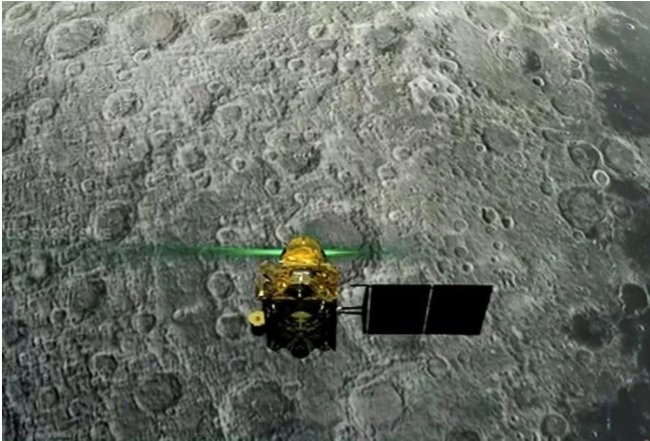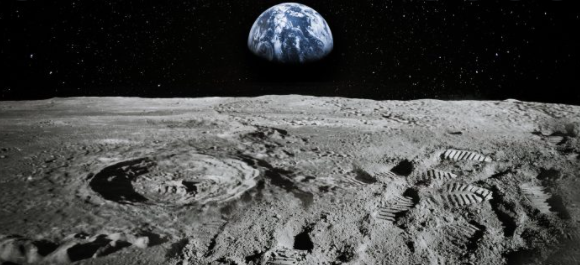Chandrayaan-2’s Big Success, The Orbiter Gave Evidence Of The Presence Of Water Molecules On The Surface.

India’s ambitious mission to the Moon, Chandrayaan-2, may have been a victim of a hard landing on the lunar surface in 2019, but its orbiter is sending very important information to scientists. A paper published earlier this week revealed that Chandrayaan-2’s orbiter detected the presence of water molecules (H2O) and hydroxyl (OH) on the lunar surface.

Water on moon
This paper has been published in the journal ‘Current Science. This has been revealed from the data of the Imaging Infrared Spectrometer mounted on Chandrayaan-2. “Preliminary data analysis by IIRS clearly shows the presence of OH and H2O at latitudes 29°N and 62°N,” the paper said. Scientists said that more data will be available in the coming time, which will make the picture clearer.
This research has been done by scientists from ISRO’s Indian Institute of Remote Sensing in Dehradun, Space Applications Center in Ahmedabad, UR Rao Satellite Center in Bangalore. According to scientists, the presence of molecules of OH or/and H2O in plagioclase-rich rocks is higher in comparison to the dark spots on the Moon. The discovery is very important for the plans to settle humans on the moon.

Moon
The Imaging Infrared Spectrometer (IIRS) onboard Chandrayaan-2 is designed to measure solar radiation reflected and absorbed by the lunar surface in the 0.8 to 0.5-micrometer spectral range. Its high spatial resolution (~80 m) and extended-spectral range (2.8 to 3.5 µm area) are best suited for the detection of hydration (water composition) due to the presence of OH (hydroxide) or/and H2O (water) on the Moon.
Let us tell you that the orbiter of Chandrayaan-2 is working despite the crash during landing on the lunar surface. ISRO says that the orbiter of Chandrayaan-2 will continue its seven-year mission of studying the lunar surface with its eight scientific instruments.










